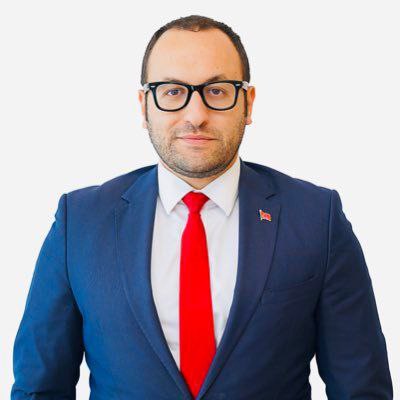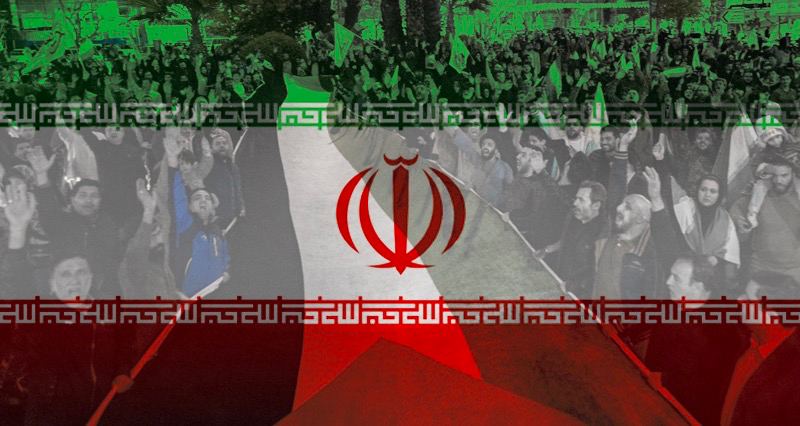On the night of April 13 to 14, for the first time in its history, Iran stroke Israel with missiles and drones fired from its territory. From hundreds of kilometers away, drones and ballistic missiles targeted many points.
We made an interview with Gürkan Demir, the representative of the Turkish TV channel Ulusal Kanal in Iran, and political scientist Umur Tugay Yücel.
What has been discussed in Iran till now, following Israel’ attack on its embassy?
Immediately after the attack, Iranian officials and the religious leader stated that it would not go unanswered. In the words of Ali Khamenei, “The punishment of Israel will come from our brave men.” The discussion in Iran revolved around whether this response would be through Iran’s own operation or through resistance forces in Lebanon, Yemen, Iraq or Syria. Khamenei’s statements essentially ended these debates.
There was significant public pressure for a strong response. Iranians took to the streets for that. That night, I observed that people were angrier compared to previous demonstrations. Throughout this period, citizens expressed their support for a severe response in various marches, events and funeral ceremonies, chanting slogans in favor of the commander of the Iranian Revolutionary Guard Corps.
What sets apart this operation from the previous ones so that it has shaken the world press?
Iran made its first direct military operation against Israel from its own territory.
The intention to avenge the expulsion of the US, Israel, and the UK from Iran in 1979 still exists in Washington, Tel Aviv, Berlin etc. Despite years of what they termed as “maximum pressure”, sanctions and embargoes, none of them yielded results as this operation witnesses. For example, there was an arms embargo on Iran, but what did Iran do? It built its own drones. Iran has reached a point where it can deploy kamikaze drones capable of hitting Tel Aviv.

If Iran’s operation escalated the conflict to a new stage, how would it to affect the situation in Gaza and Palestine? Are other powers expected to get involved in the conflict?
I mentioned the will of revenge of the Western countries. But Israel also wants to take revenge of the October 7 Al Aqsa Storm operation. Since then, Tel Aviv is consistently accusing Iran. Washington also concluded that Iran orchestrated this operation, citing the missiles used in the operation as Iranian-made. We know that they also attribute the strength of Hezbollah in Lebanon to Iran.
The actions of the Yemeni army in the Red Sea have dealt a serious economic blow to Israel. They also accuse Iran for this. They also hold Iran responsible for targeting American bases in Syria and Iraq. All this paints a picture from their perspective of why they seek a showdown.
Israel, for this purpose, started targeting not only Syrian forces but also Iranian advisors with official titles stationed in Syria. Eventually, they targeted the embassy, violating international law.
After Iran’s operation, the US and many European countries once again declared their stance against Iran and support for Israel. In sum: the Atlantic front is once again taking its proper position.
Notice that here emerges the same alignment as in the war in Ukraine. The set siding with Ukraine is almost identical to those siding with Israel. This indicates a shared destiny between Russia, Iran and Palestine.
How perceives Iran the attitude of Russia and Türkiye since October 7?
Russia has long been supportive of Iran when Iran confronts with the US and its allies. As for Türkiye, Iran sees its stance positive but insufficient. Türkiye’s recent trade restriction on Israel made a great impression in Iran. Türkiye’s move aligned with Iran’s calls to sever commercial ties with Israel. Iran and Türkiye together have the potential to make significant strides on the Palestinian issue.
These developments directly concern Türkiye. Why? Because a weak Israel brings about a weak PKK-PYD terrorist organization. A weak Israel accelerates the decline of the US. From this perspective, we can say that Iran’s operation is also for Türkiye’s good.
Has the operation achieved its goal for Iran?
There are various criteria to measure the success of this operation. Whether the drones hit the targets is only one of them is. The Israeli public anxiously awaited Iran’s response for days. Netanyahu and his aides had sleepless nights. Market shelves were emptied, and there were almost looting in shops. Education was disrupted. Considering the cost of intercepting kamikaze drones by the Iron Dome, it caused significant economic losses.
Additionally, we saw celebrations among Palestinians. It had a positive effect morale-wise.
Here are the comments of political scientist Umur Tugay Yücel:
The Hamas and Iranian strikes on Israel have put an end to the myths of Israel’s impunity, invulnerability and invincibility.
For the first time in a half century, Israeli territory was bombed by a non-Arab state.
Iran directly bombed Israeli territory for the first time in front of the whole world. Israel’s nuclear capability did not deter Iran.
With the Iran’s attack, Israel, despite its nuclear power, is no different from other Middle Eastern countries. It has turned into a Middle Eastern country that can be shot or bombed at any moment.

The period of Persian-Israeli conflict is added to the period of Arab-Israeli wars. Iran struck Israeli territories from its own country with its own national and domestic vehicles without any proxy.
Iran’s attack showed that the deterrence of the USA and Britain was no longer much deterrent.
First Hamas and then Iran striking Israel shows that many things have changed for Israel, for the Middle East and for the global order.
It has become clear that Israel is no longer and never will be a safe country. Worse for Israel, the whole of Israeli territory can now be targeted by Iran after every Israeli attack.
Now the burden is on Israel. What Israel will do has become a bigger mystery than what Iran will.

















Leave a Reply